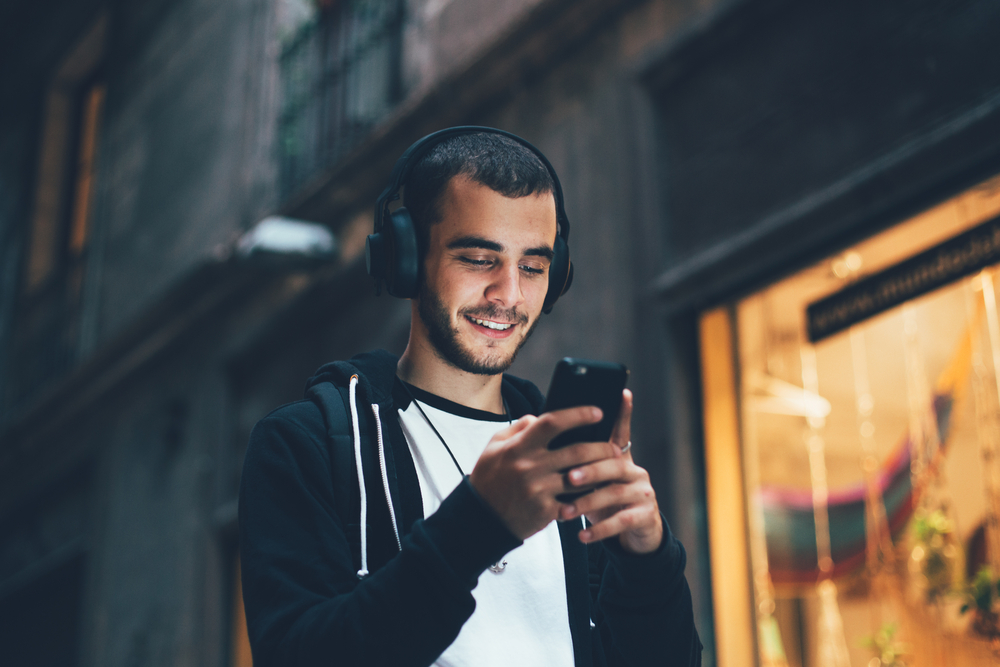
James is a music enthusiast who has mastered the art of incorporating his favorite music into his day-to-day life, easily shifting from Spotify at his desk to Pandora on his runs, and meticulously putting together playlists to beautifully complement every activity, whether he’s working out, whipping up a meal, or immersed in a gaming session. He’s rarely seen without his headphones, which have become an essential part of his day-to-day life, transforming every moment into an individualized audio experience. James takes comfort and delight in the engaging world of music, but the very source of his joy might be harming his cherished ability to hear without him realizing it.
Regarding our ears, there are both safe and harmful ways to enjoy music. Sadly, many of us tend to gravitate towards the latter.
What is the link between extended exposure to music and hearing damage?
Over time, loud noises can lead to deterioration of your ability to hear. Hearing loss is commonly linked to getting older, but recent studies suggest that it is primarily caused by damage from exposure to loud noises rather than being a normal part of aging.
Younger individuals are more prone to noise-induced harm as their ears are still in the developmental stage. And yet, young adults are more likely to be dismissive of the lasting hazards of high volume. So there’s an epidemic of younger individuals with hearing loss, thanks, in part, to rampant high-volume headphone usage.
Can one listen to music without any safety issues?
Listening to music at full blast with no limits is the most hazardous strategy. But there is a safe(er) way to enjoy your tunes, and it usually includes turning the volume down. The general guidelines for safe volumes are:
- For Adults: No more than 40 hours of listening on a device, and maintain the volume below 80 dB.
- For Teens and Minors: You can still listen for 40 hours, but keep the volume level lower than 75 dB.
Forty hours per week translates into about five hours and forty minutes a day. Although it might seem excessive, the time can pass surprisingly fast. Even still, most people have a pretty strong concept of monitoring time– it’s something we’re trained to do effectively from a very young age.
The more challenging part is keeping track of your volume. On the majority of smart devices, computers, and televisions, volume is not computed in decibels. Its value is determined using a somewhat subjective or relative scale. Maybe it’s 1-100. But maybe it’s 1-16. You might be unaware of the maximum volume range of your device or how near you are to reaching that limit.
Tips for effectively keeping track of your music volume
Numerous free noise monitoring apps can be downloaded for both iPhone and Android devices to address this problem. These apps supply real-time information into ambient noise levels, equipping users to adjust their music volume accordingly.
For this reason, many audiologists suggest using one of the numerous noise level tracking apps available at no cost. These widely accessible apps, compatible with both iOS and Android platforms, supply instant sound-level feedback on the background noise around you. In this manner, you can keep track of the decibel level of your music as it plays and make adjustments as necessary.
Comparing relative volumes: from garbage disposals to dishwasher
As example, 80 dB is approximately equivalent to the noise emitted by a typical garbage disposal or dishwasher– audible, yet not overly loud. Acknowledging this benchmark is essential, as it represents the limit beyond which auditory damage becomes a substantial danger.
So, being extra vigilant when exceeding this decibel limit is essential. Think about limiting exposure to overly loud music by enjoying select tracks at full volume instead of indulging in entire albums.
Prolonged exposure to loud sounds can lead to hearing issues, including ringing in the ears, or tinnitus, and potentially permanent damage to one’s hearing. By being aware of when our ears are at risk, we enable ourselves to make informed choices in order to encourage safer listening habits.
Book an appointment for a hearing assessment
For better prioritization of your hearing health, it is recommended to consult a hearing professional to schedule a thorough hearing exam. Proactive steps such as regular assessments can identify any potential issues early on, allowing for timely interventions and individualized recommendations to protect your precious sense of hearing.
